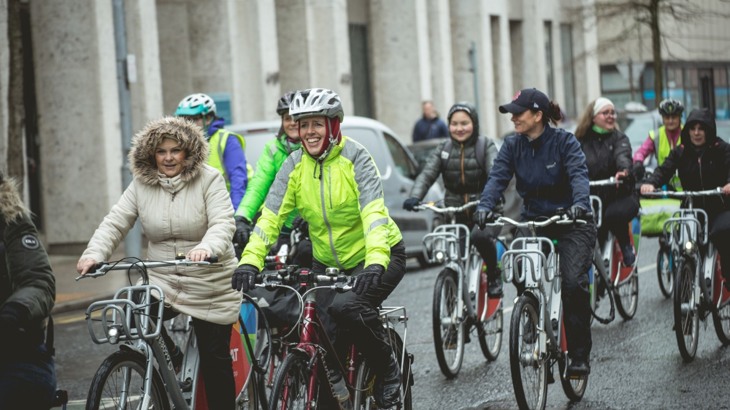Moving people around can be an expensive business. When we think about the costs of some current infrastructure projects, we can see some very big numbers – Cross Rail, £15bn; the Roads Investment Strategy in England, £15bn; Forth Crossing at Queensferry, £1.4bn; High Speed 2, £? – nobody is quite sure… We may quite reasonably wonder, on the one hand, whether this investment is really necessary, and, on the other hand, whether we could make investments in transport now that might better serve the needs of future generations.

What is the purpose of the investment?
The effect of most big-scale transport infrastructure is to move more people, and more stuff, further faster. The received wisdom of generations of transport planners and economists is that this is inherently a good thing. But people are increasingly wondering whether we need quite so many people travelling quite so far and at quite such speed.
A case in point are the proposals for the M4 corridor around Newport in South Wales. A series of congestion hotspots in the vicinity of Newport and Cardiff mean that travelling in the area by car is often difficult. A long sought-after solution is a scheme to improve traffic flows on the M4. Costed at £1.4bn, the hope is that congestion can be eased and journey times improved.
Do the proposals serve the needs of the people?
Newly released research commissioned by the Office of the Future Generations Commissioner for Wales questions this approach to dealing with the problem.
There is a growing weight of opinion behind the view that there may be options that better serve the needs of both the people resident in the immediate vicinity, and the needs of people travelling through the area.
Sustrans have teamed up with the Centre for Transport Studies at the University of the West of England and the New Economics Foundation to think through some of the possible alternatives. The new report released by the Office of the Future Generations Commissioner for Wales addresses some of the key questions and considers in detail some of the alternatives that could be considered.
Key questions and considerations
Some of the issues we have thought about include:
Have all possible options been considered?
The business case for the M4 seems peculiarly myopic, in respect of the fact that very little other than building bits of road seems to have been seriously considered.
Will the road building approach actually work to alleviate congestion?
There is a great deal of evidence to suggest that road building just generates more traffic, so the congestion issue doesn’t go away.
Will road building leave the kind of legacy that we want to give to future generations?
Concerns about air quality and carbon emissions are high among young people, and road building can serve to lock-in problems for the longer term.
Could investment in walking and cycling better serve to ease congestion on the M4?
At first glance, this may seem like an odd proposition. How can travelling by car on the M4 be displaced by walking or cycling?
Well, the evidence is that a lot of the traffic at the pressure points on the M4 is local traffic that is making relatively short trips. So what if the people who needed to make those trips were offered different options – would they use good public transport or safe and pleasant walking and cycling facilities?
The answer is undoubtedly yes. So if we can make better provision for local travel, we can reduce the number of cars on the M4. Congestion is reduced, more people are more able to make better choices, and the £1.4bn can be invested in ways that are far more likely to improve the lives of current and future generations.
The benefits of the Sustrans model
Sustrans has modelled the potential impacts of investment in safe routes and supportive measures on walking and cycling. Evidence suggests that the investment of £118 million in Cardiff, Newport and Monmouthshire over the next ten years results in a near doubling of cycling and a 20% increase in walking. This delivers benefits worth over £1bn, saves nearly 40 lives every year from reducing levels of physical inactivity, and reduces commuting traffic in Newport by over 25%.
Sustrans supports the view of the Future Generations Commissioner for Wales that there are better solutions to the problems of congestion on the M4 than simply trying to build our way out of trouble.

